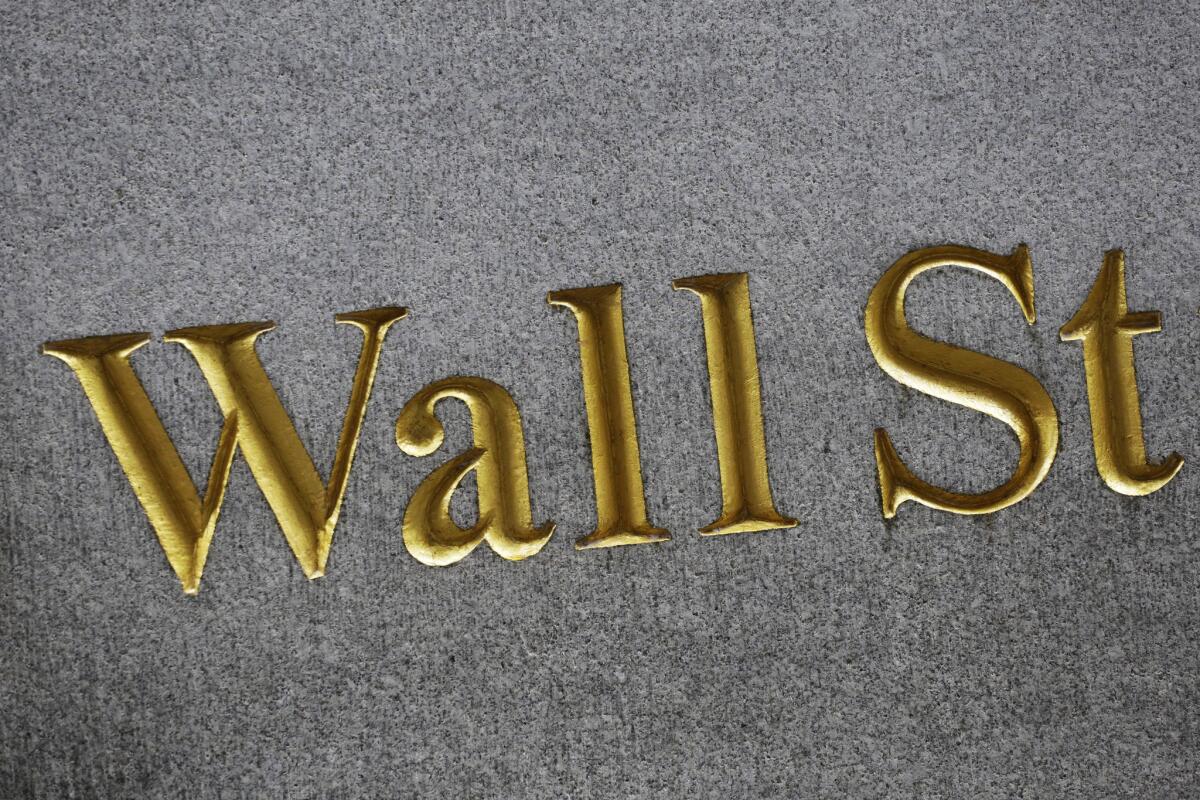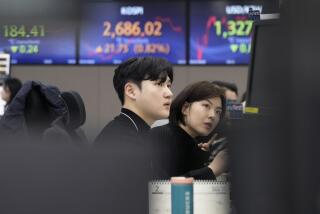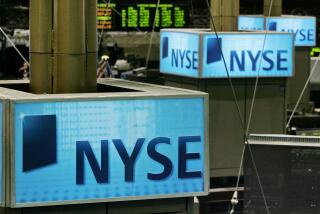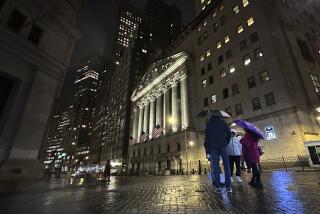U.S. stocks shake off a wobbly start and end mostly higher

- Share via
U.S. stock indexes closed mostly higher Friday, though the Standard & Poor’s 500 posted its first weekly loss in four weeks.
The benchmark index eked out a 0.3% gain after another day of wobbly trading. The Dow Jones industrial average finished with a small loss. Gains in communication services, healthcare and other sectors outweighed a decline in technology and energy companies. Treasury yields remained near their highest levels since June.
The indexes bounced between small gains and losses after a sluggish start as investors weighed another batch of corporate results from the summer earnings period. The up-and-down moves have been a familiar pattern recently as traders keep an eye on the ongoing negotiations between Republican and Democratic leaders in Washington over more economic aid for the pandemic-stricken economy.
The S&P 500 rose 11.90 points to 3,465.39, its second straight gain. The Dow dropped 28.09 points, or 0.1%, to 28,335.57. The Nasdaq composite, which is heavily weighted with technology stocks, gained 42.28 points, or 0.4%, to 11,548.28. The index had been down 0.6%.
Small company stocks continued to best the rest of the market. The Russell 2000 index rose 10.25 points, or 0.6%, to 1,640.50. The index ended the week with a 0.4% gain, while the major U.S. indexes fell.
Stocks have been mostly pushing higher this month after giving back some of their big gains this year in a sudden September swoon. Before this week, the S&P 500 had notched a weekly gain three weeks in a row. It’s now up 3% for the month heading into the final week of October.
Investors are hoping for another round of government aid for businesses and millions of people who have lost their jobs during the COVID-19 pandemic. The last round of supplemental aid for unemployed Americans expired at the end of July.
House Speaker Nancy Pelosi (D-Calif.) and Treasury Secretary Steven T. Mnuchin have been negotiating daily this week on a possible aid package. On Thursday, Pelosi said progress is still being made, but any compromise will probably face stiff resistance from Republicans in the Senate.
Wall Street is worried that if an agreement on more economic aid isn’t reached before the Nov. 3 election, the matter could be left in limbo should there be a protracted delay in sorting out the outcome of the voting.
Uncertainty over whether Uncle Sam will provide more support for the economy overshadowed solid earnings reports from big companies. Although many have reported profits for the summer that took a hit from the coronavirus-caused recession, their results have been mostly not as bad as feared.
Barbie maker Mattel jumped 9.6% after its latest earnings blew past analysts’ forecasts. Capital One Financial gained 1.6% after turning in robust results.
Some companies’ results didn’t live up to Wall Street’s expectations. American Express fell 3.6%; chipmaker Intel sank 10.6%, the biggest decline in the S&P 500, after reporting weakness in its data center business. Intel’s drop helped pull the Dow into the red.
Drugmaker Gilead rose 0.2% after U.S. regulators gave formal approval to its antiviral drug remdesivir to treat patients hospitalized with COVID-19.
Treasury yields dipped but remain near their highest levels since June. The 10-year Treasury yield slipped to 0.84% from 0.87% late Thursday.
The recent pickup in bond yields follows encouraging data on residential construction, home buying and retail sales. It also suggests that bond investors are more optimistic that the economy will receive more aid from Washington.
Markets in Europe closed higher, and Asian markets mostly rose.
More to Read
Inside the business of entertainment
The Wide Shot brings you news, analysis and insights on everything from streaming wars to production — and what it all means for the future.
You may occasionally receive promotional content from the Los Angeles Times.










